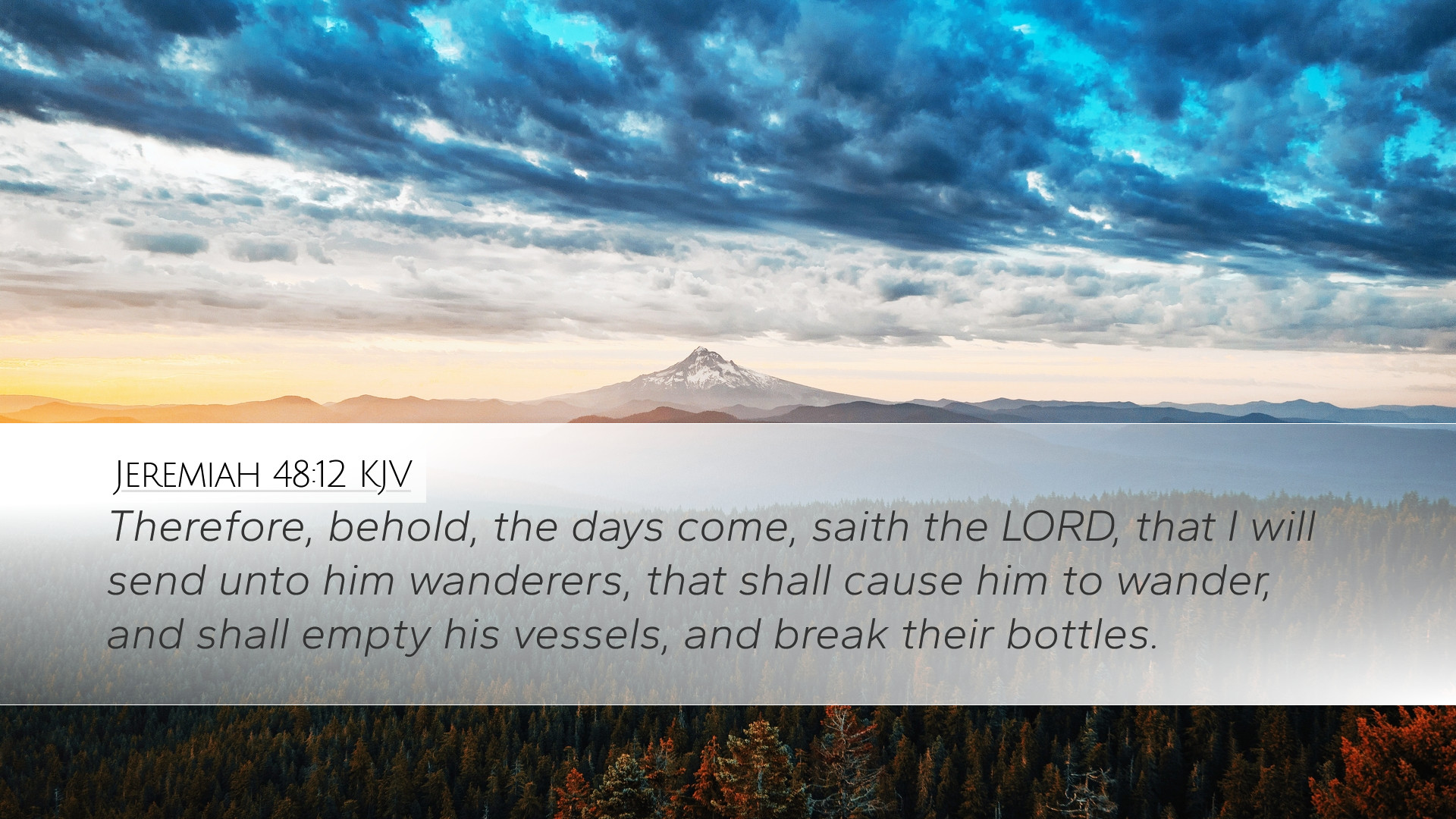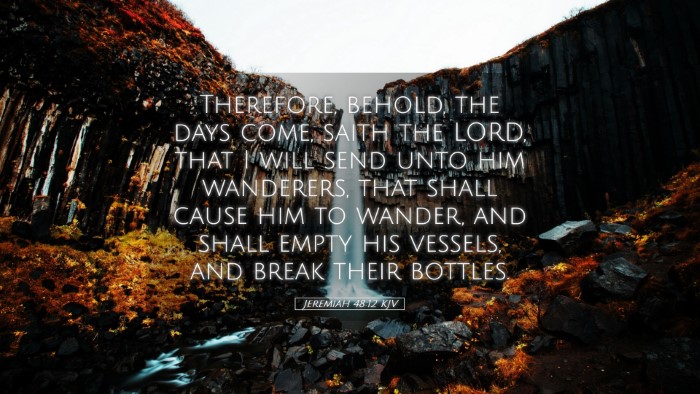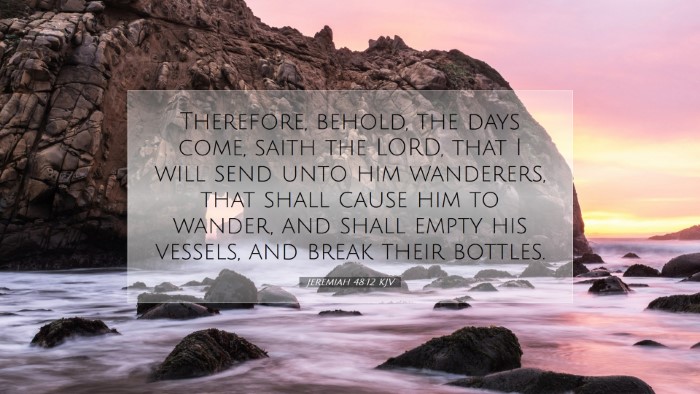Commentary on Jeremiah 48:12
Jeremiah 48:12 states: "Therefore, behold, the days come, saith the Lord, that I will send unto him wanderers, that shall cause him to wander, and shall empty his vessels, and break their bottles." This verse speaks to the impending judgment and destruction of Moab, a nation that had fallen into idolatry and arrogance.
Contextual Background
The book of Jeremiah is a prophetic text that addresses the southern kingdom of Judah, but it also includes oracles against surrounding nations, including Moab. Moab, located east of Israel, was often in conflict with Israel and known for its worship of false gods.
Insights from Commentators
Matthew Henry
Henry emphasizes the certainty of God's judgment upon Moab, portraying the nation as one that had filled herself with pride and security. He notes that the term "wanderers" refers to invaders or conquerors who would come to ravage and strip the land. Unlike the Israelites, who faced judgment for their unfaithfulness and were later restored, Moab would face a desolation with no hope of recovery.
- Arrogance and False Security: Henry points out Moab's arrogance in believing they were invincible. Their security, founded on their own might, led to their downfall.
- Divine Judgment: The sending of "wanderers" signifies God’s active role in administering judgment. These wanderers serve as instruments of God’s wrath, showing that God orchestrates the events that lead to nations' ruin.
- Destruction of Resources: The imagery of vessels being emptied and bottles being broken symbolizes the complete loss of Moab's resources and strength, leading to utter despair.
Albert Barnes
Barnes provides a detailed analysis of God's ordained process for Moab's judgment. He articulates that the prophecy indicates a time when God will allow external forces to invade Moab, thus signifying that the nation's pride has provoked divine retaliation.
- God's Sovereignty: Barnes highlights that God is in control of historical events. The term "wandering" reflects God’s ability to raise up nations to execute His judgment.
- Vessels and Bottles: He elucidates that vessels signify the wealth and resources of Moab. Their destruction represents a total degradation of the nation's identity, both economically and spiritually.
- Implications for Surrounding Nations: Barnes ties the fate of Moab to that of other nations that oppose God. The passage serves as a cautionary tale to Israel and other nations against rivaling God’s authority.
Adam Clarke
Clarke tends to focus more on the practical implications of the prophecy. He reflects on the gravity of sin and its societal consequences, especially emphasizing how Moab's iniquity led to inevitable downfall.
- Consequences of Sin: Clarke asserts that the spiritual decay within Moab had far-reaching social and political ramifications that ultimately invited judgment.
- Application for Today: Clarke draws parallels to contemporary societies, warning of the dangers of pride and moral decay leading to God’s judgment.
- Hope in Repentance: While emphasizing judgment, Clarke acknowledges that God’s mercy remains a consistent theme throughout Biblical prophecies, suggesting that repentance could avert disaster.
Theological Reflections
This verse provides rich material for theological reflection, particularly regarding divine justice, human pride, and the prophetic role in warning nations.
- Divine Justice: The prophecies highlight God's commitment to justice and righteousness. The fate of Moab serves as a reminder that God will not allow sin and rebellion to go unchecked.
- The Danger of Idolatry: Moab's fall is closely tied to its idolatry. This reflects the Biblical truth that turning from the true God opens nations to devastation.
- Prophetic Responsibility: The role of the prophet is to give voice to God's judgments. Jeremiah's oracles challenge modern believers to remain faithful and vocal in the face of moral decline.
Conclusion
Jeremiah 48:12 serves as a poignant reminder of the consequences of arrogance and unfaithfulness towards God. By examining this verse through the insights of Matthew Henry, Albert Barnes, and Adam Clarke, we derive a deeper understanding of the nature of divine judgment, the importance of humility, and the role of prophetic warning in the life of believers.
As we reflect on this passage, let us be cautious of the pride that led to Moab's downfall and remain steadfast in our reliance on God, understanding that spiritual health is vital for the survival of individuals and nations alike.


